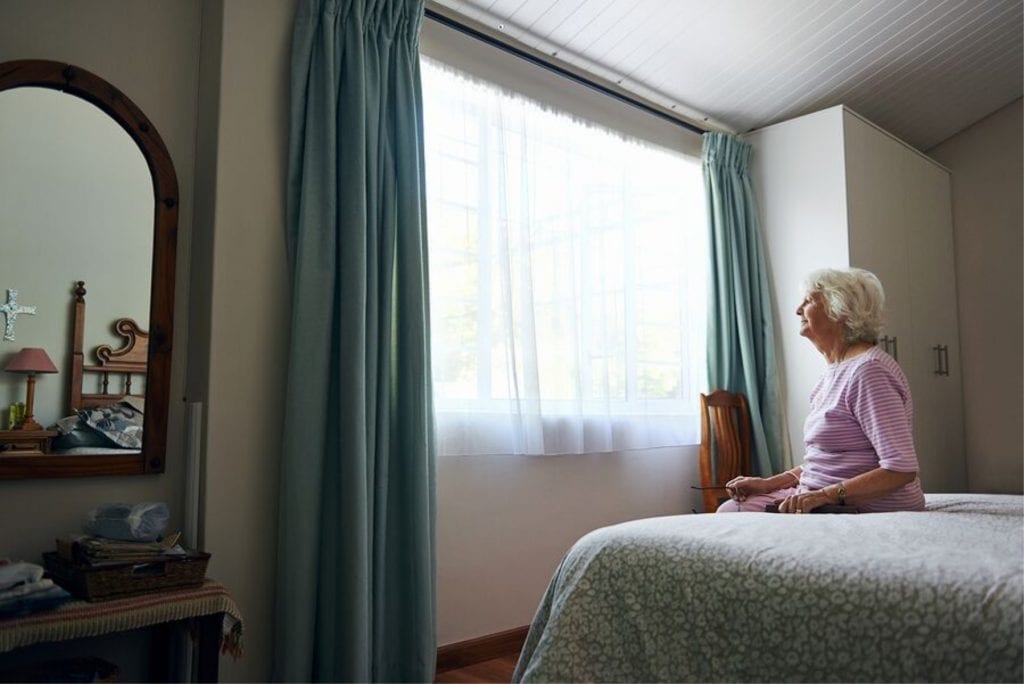Learn More About Seasonal Affective Disorder Today
Does it seem like your elderly loved one has the winter blues?
Maybe they get the winter blues every year. If this is the case, they might have something known as a seasonal affective disorder. This is more than just feeling down around the holidays and it generally doesn’t go away until the warmer weather hits. Millions of people 65 and older have this disorder. If you aren’t sure if your loved one has this disorder, it is important for you and their elderly care providers to watch out for the symptoms.

Elder Care in Arlington County VA: Seasonal Affective Disorder
Increased Agitation, Anxiety, or Irritability
Have you noticed that during the winter months your elderly loved one gets increasingly agitated, anxious, or irritable? If so, you should know that this is one of the most common symptoms of seasonal affective disorder. If this is happening for your loved one, talk to them about what is going on. Ask them if the colder weather might be causing them to feel off. If so and they can’t break out of the funk, talk to their doctor about what options exist to help them feel better.
Increased Fatigue and Lack of Energy
Has your elderly loved one been feeling more and more fatigued in the colder months? Do they seem like they have no energy, no matter how many hours of sleep they get every night? Increased fatigue and a lack of energy are both symptoms of seasonal affective disorder. If your loved one is becoming increasingly fatigued and can’t seem to get that boost of energy, have them talk to their doctor to find the cause.
No Interest in Things or Isolating Themselves
Does it seem like your elderly loved one has no interest in things they usually enjoy? Maybe they turn down invitations to go places or to do things with their friends and/or family members. They might isolate themselves in their bedroom or in another area of their home, especially if they live with other people. This could be a sign that they have a seasonal affective disorder.
Sleep Pattern Changes
Has your elderly loved one been sleeping way more or way less than normal? Sleep changes often happen when someone has a seasonal affective disorder. The problem is that these sleep changes can hit elderly adults much harder than they hit younger adults. If your loved one is going through these sleep changes, be sure they talk to their doctor about it. Managing their seasonal affective disorder could help them to get the proper amount of sleep.
Appetite Changes
Appetite changes are another symptom of seasonal affective disorder. Maybe your elderly loved one won’t eat all of their meals during the winter months. They might eat too much or eat a bunch of junk food, which isn’t good for them. If you or an elderly care provider notice these changes in your loved one, find out what is going on. It could be this disorder or something else may be playing a part in their appetite changes.
These are some of the things that you should know about seasonal affective disorder. If you suspect that your elderly loved one has this disorder, schedule them a doctor’s appointment right away, so they can discuss possible treatment options.
If you or an aging loved-one are considering hiring Elder Care in Arlington County, VA, please contact the caring staff at LivinRite Home Care.
Call Us Today at (703) 634-9991.
Sources
Nimh.nih.gov
Medlineplus.gov
- Skilled Nursing: Offering Peace of Mind for Seniors Aging in Place - April 8, 2025
- Can Physical Therapy Help Seniors Learn How to Fall Safely? - March 27, 2025
- Senior Home Care Helps Keep Aging Adults Safe in the Kitchen - March 11, 2025
